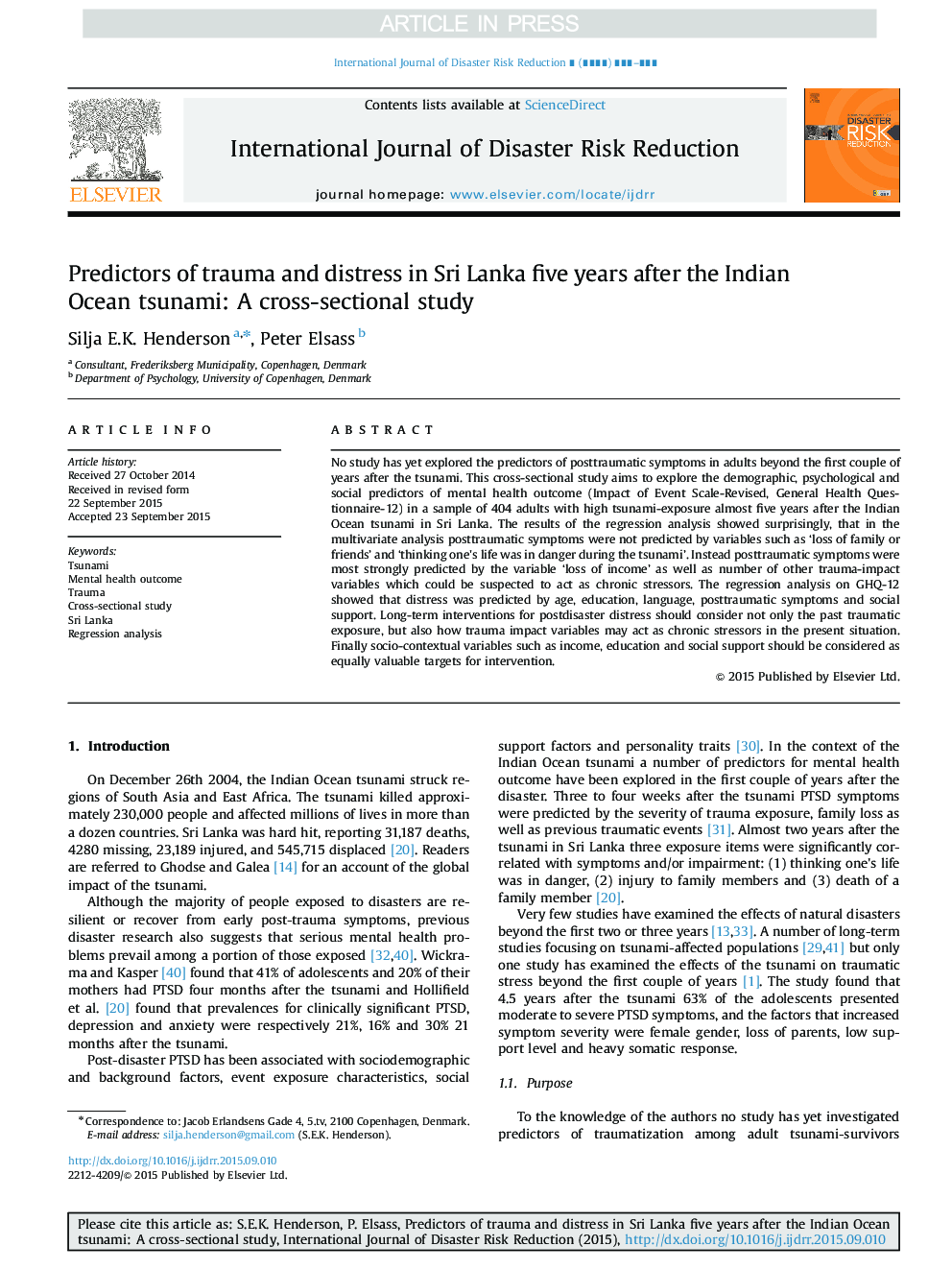| Article ID | Journal | Published Year | Pages | File Type |
|---|---|---|---|---|
| 7472901 | International Journal of Disaster Risk Reduction | 2015 | 7 Pages |
Abstract
No study has yet explored the predictors of posttraumatic symptoms in adults beyond the first couple of years after the tsunami. This cross-sectional study aims to explore the demographic, psychological and social predictors of mental health outcome (Impact of Event Scale-Revised, General Health Questionnaire-12) in a sample of 404 adults with high tsunami-exposure almost five years after the Indian Ocean tsunami in Sri Lanka. The results of the regression analysis showed surprisingly, that in the multivariate analysis posttraumatic symptoms were not predicted by variables such as 'loss of family or friends' and 'thinking one's life was in danger during the tsunami'. Instead posttraumatic symptoms were most strongly predicted by the variable 'loss of income' as well as number of other trauma-impact variables which could be suspected to act as chronic stressors. The regression analysis on GHQ-12 showed that distress was predicted by age, education, language, posttraumatic symptoms and social support. Long-term interventions for postdisaster distress should consider not only the past traumatic exposure, but also how trauma impact variables may act as chronic stressors in the present situation. Finally socio-contextual variables such as income, education and social support should be considered as equally valuable targets for intervention.
Related Topics
Physical Sciences and Engineering
Earth and Planetary Sciences
Geophysics
Authors
Silja E.K. Henderson, Peter Elsass,
